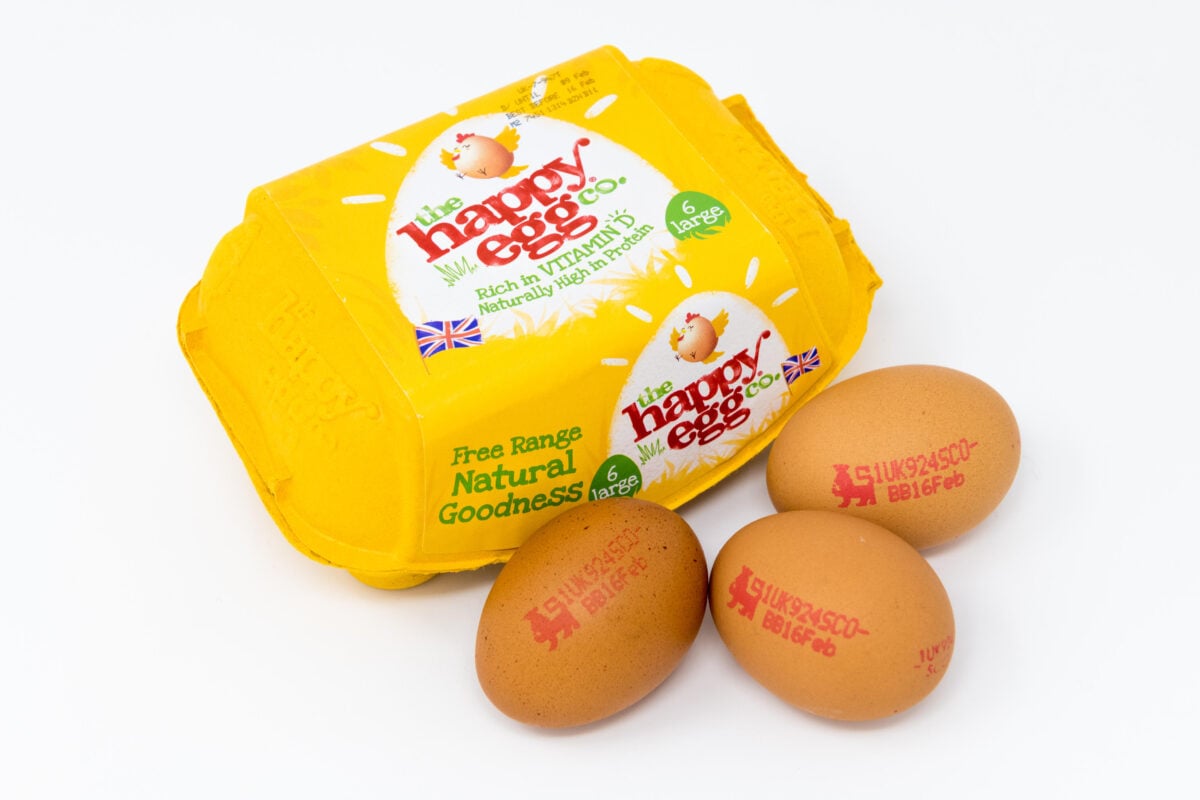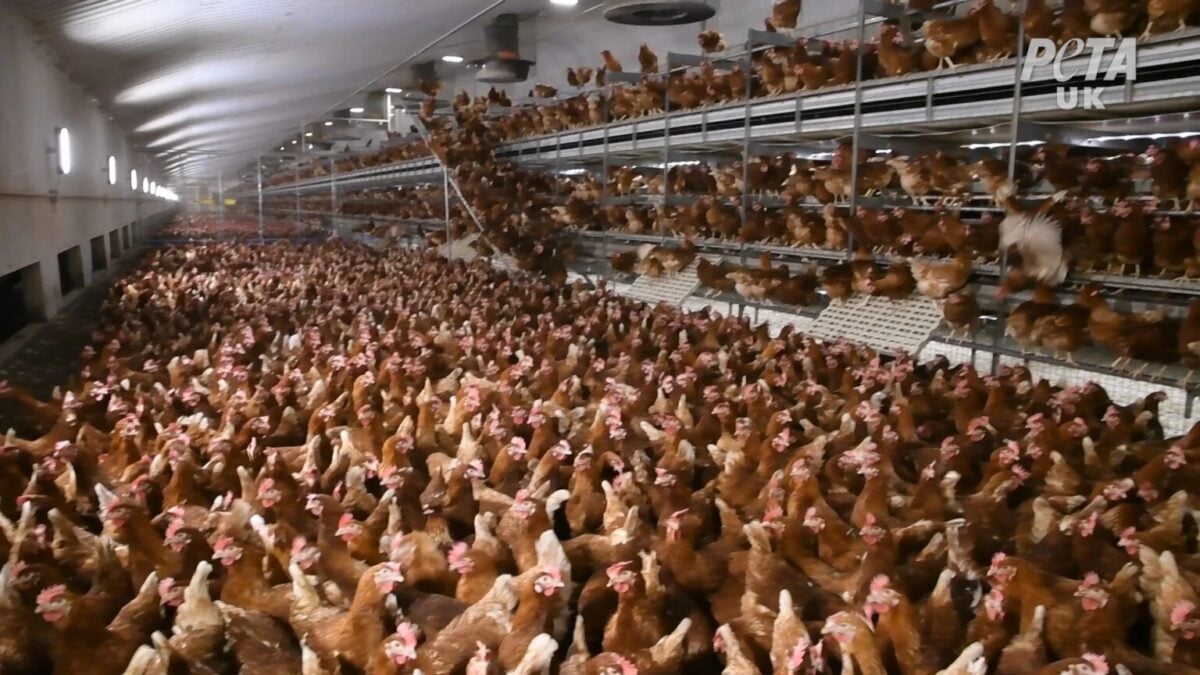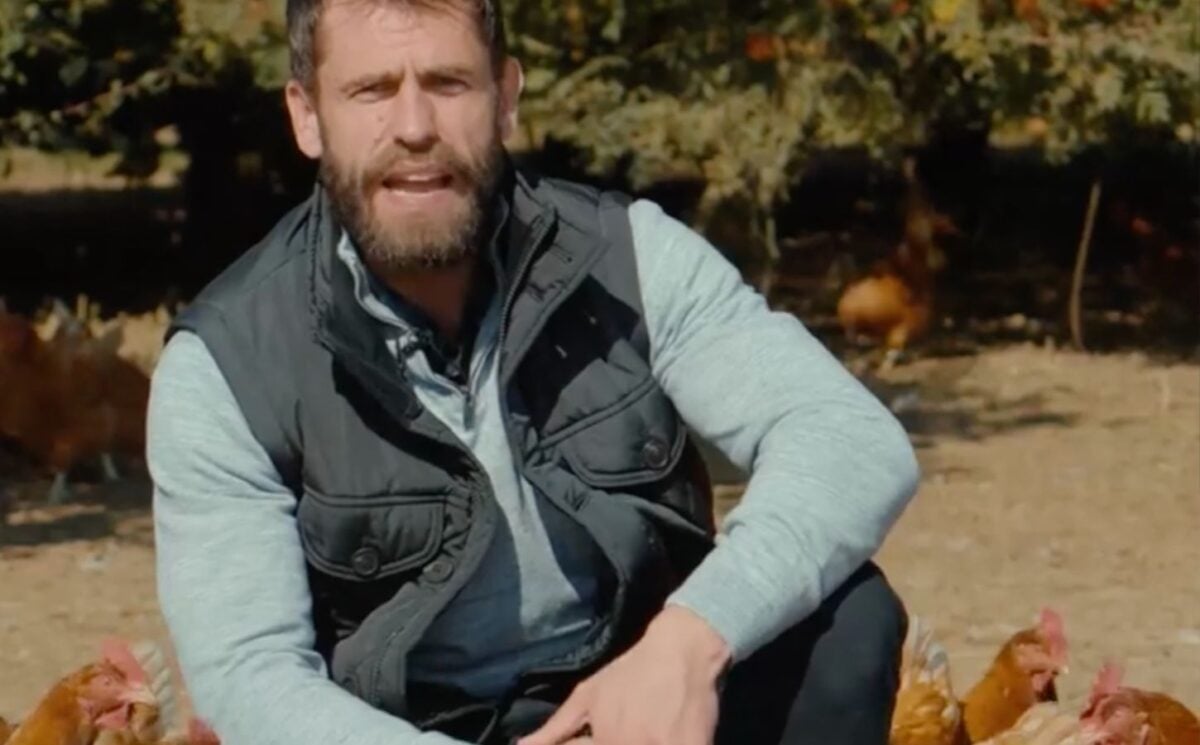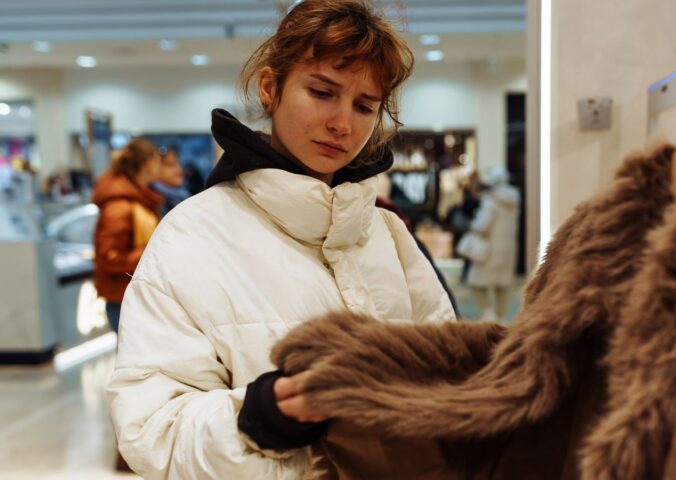The Happy Egg Co. has unveiled a new advert for its UK farms featuring actor and farmer Kelvin Fletcher. The clip, posted to LinkedIn, shows Fletcher walking around sunny fields while chickens roam freely around the grass. “They certainly do look very happy,” Fletcher says. “I can see where they’ve got their name from.”
Read more: Think Free Range Eggs Are Ethical? Investigation Exposes Reality Of ‘Cage-Free’
The Happy Egg Co. has been portraying such images of its farms since launching in 2009. The brand, which is owned by Noble Foods, is one of the largest free-range egg producers in the world. As the name suggests, The Happy Egg Co. has repeatedly stated that its eggs come from farms where the “hens always come first.” One of its taglines is “a happy hen makes a happy egg,” and it claims that its farms exceed the standards set out by the RSPCA.
But the clip has been met with criticism by many animal advocates for its apparent misleading portrayal of the reality of egg farms. Matthew Glover, the founder of Vegan Food Group (VFG), described the video as “a masterclass in welfarewashing.”
Read more: Farmed Hens Killed In Huge Texas Barn Fire
The reality of Happy Egg farms

Multiple investigations over the years have uncovered suffering behind The Happy Egg Co. label.
In 2021, animal rights group PETA visited three farms supplying the brand: one in Cumbria, a second in Herefordshire, and a third in Gloucestershire. While the birds weren’t kept in cages, they were nevertheless housed in crowded barns with thousands of other hens. Their conditions kept them from engaging in natural behaviors like foraging, extending their wings, roosting, and nesting.
The new advert shows Fletcher, who owns a farm himself, walking with the hens in green fields filled with trees. But the reality at one of the farms was a bare muddy ground with “a few dilapidated wooden shelters,” according to PETA. While the barns did provide access to the outside, many hens were “too afraid to venture out.”
“The bare, barren space is entirely inadequate and anxiety-provoking for nervous prey animals, and all but the most dominant hens are too scared to push through thousands of other birds to reach the opening,” explained PETA in its investigation notes.
Mutilations were also common on farms, with the majority of hens having had a portion of their beaks cut off. Beak trimming can cause both acute and chronic pain, and farms carry it out to prevent hens from pecking at themselves or each other due to stress. Video footage showed that many of the hens were missing feathers. Dead and dying birds were observed, and deceased animals were left to rot among the living.

In response to Happy Egg’s new advert, PETA’s vice President of Programmes Elisa Allen told Plant Based News (PBN) that “no decent person would support or buy from The Happy Egg Co. if they knew the real misery birds endure in crowded sheds on farms.”
“Hiring an animal farmer as your welfare ambassador is like letting a tobacco executive run a health campaign,” she added. “Of course they’ll say everything’s fine – it’s in their best interests to protect the industry, not the victims.”
No such thing as a ‘happy farm’
Despite The Happy Egg Co.’s – and the broader free-range egg industry’s – attempt to promote itself as “high welfare,” many animal advocates believe there is no such thing as an ethical farm.
All “egg-laying” hens, regardless of the farm they live on, have been selectively bred to produce far more eggs than they naturally would. A typical hen will lay over 300 eggs a year (naturally, they would lay around 12). They often suffer from conditions like osteoporosis and broken bones due to calcium deficiency. Male chicks bred into the egg industry are regarded as surplus to requirements, so they are killed soon after birth.
Animals farmed for food aren’t free to live life on their own terms, and are instead exploited for profit before being eventually slaughtered. “‘Higher welfare’ farming is sold to the public through joyful marketing campaigns and smiling cartoon characters, but the reality couldn’t be further from this misleading propaganda,” Ayrton Cooper, campaigns manager at Animal Justice Project, which campaigns against animal farming, told PBN. “No level of welfare assurance will ever meaningfully protect animals on farms, during transportation or inside a slaughterhouse, and our investigations have proved that time and time again.”
Read more: Vegan Egg Market Set To Grow By Almost $1 Billion By 2028






